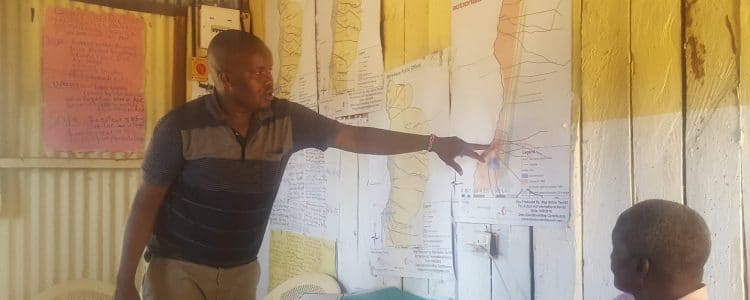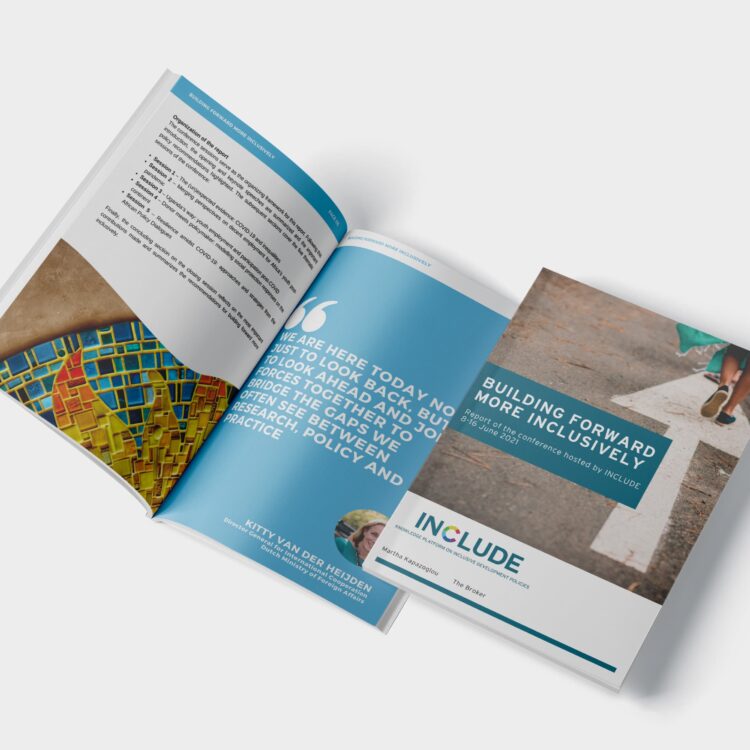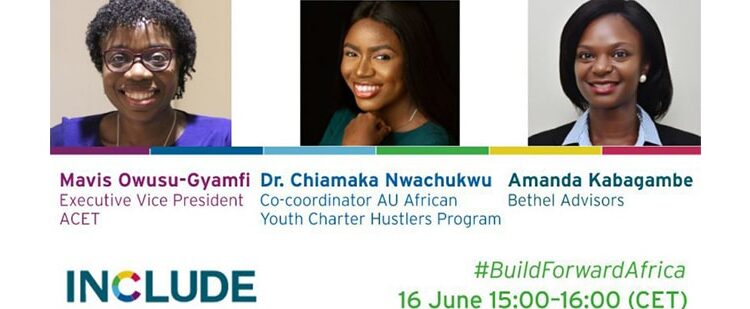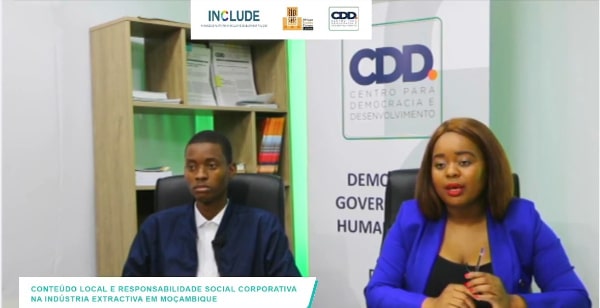
The research programme ‘New roles of CSOs for inclusive development’ investigates the assumptions, solutions and problems underlying the civil society policy framework ‘Dialogue & Dissent’ of the Dutch Ministry of Foreign Affairs. Currently, all the research groups are conducting the empirical part of their research. The ‘Assumptions blog’ provides insight into the fieldwork of the research groups – the researchers share their on-the-ground experiences through this blog. This time, Dr Billian Khalayi Otundo of Moi University, from the research group ‘Civil society engagement with land rights advocacy in Kenya: what roles to play?’, shares some of her field observations from Kenya.
The land question in Kenya remains an unsettling issue that may continue to resonate for decades, unless the government puts in place measures to deal with it, particularly concerning the effective compensation of displaced citizens. In a bid to have their voices heard, grassroots movements have taken it upon themselves to advocate for citizens’ rights to land. By way of participant observation and interviews, I found that these movements employ various strategies to advocate for land rights. I also discovered that in the course of advocating for compensation and resettlement by the government or companies, grassroots movements face a number of challenges. This is because in Kenya it is particularly difficult to go against government decisions on the use or allocation of land. Furthermore, company projects are usually strongly supported by the government. During the research, I noticed similar challenges encountered by three grassroots movements: one in Nakuru county addressing displacement by a power company and two in Baringo county addressing displacement because of a wildlife conservancy and a forest reserve.
So, which challenges affect how movements function? I found that grassroots movements operate on a voluntary basis with members joining activities on the basis of a shared principle or common goal to do something valuable for the community. There is no financial compensation, which sometimes leads to limited commitment, short-lived activism and even corruption. Due to their shared goals, it is expected that members exercise their rights responsibly. However, given the fact that most members can barely earn a living, there have been cases reported of individual members being corrupted by government officials to deter or slow down advocacy, causing corrupt members to romanticise the notion: ‘it is the nature of things that progress is slow’.
As much as there is a general aim that drives the movements, it is also clear that they have shortcomings. In particular, they have no working structures and policies to govern them. Consequently, there are inadequacies in decision-makingprocesses and they fail to fully involve all sections of the community in decisions that affect them. For instance, when community members were asked whether the leaders of these movements sought their opinion on the choice of compensation, be it monetary or resettlement, only a couple responded affirmatively. Moreover, most denied the statement that ‘all the villagers’ made important decisions affecting such movements. This indicates that a large number of the villagers do not feel included in decisions on important issues, despite the fact that grassroots discourses ought to be domination-free spaces. Moreover, these movements also lack control and accountability mechanisms in the form of efficient and effective record keeping, authentication, tracking, maintenance and retrieval of documents. Yet another drawback is the low literacy level of members of such movements. Due to this, members tend to learn by doing, keep simple organisational records, or adopt benchmarking from other local movements. Good education would enable better and informed participation in decision making, improve the quality of leadership and facilitate the movements’ self-reliance, which is often lacking. In response, some national level organisations try to assist by training the members of grassroots organisations.
External challenges also complicate the advocacy strategies of movements.One of the greatest external challenges posed to movements is the land tenure system in Kenya, particularly regarding communal land. Even though communal land tenure has only recently been recognised in Kenya, land ownership among pastoralists has been described by the government as an inefficient form of land use. This negative connotation toward pastoralism dates back to colonial times, when the British regarded pastoralists as a threat.
Working with unresponsive and sometimes corrupt governments, particularly at the county level, poses another challenge. Government officials often fail to keep up with activities or provide the services that they promised to the community. A case in point is when government officials promise communities that allotment and titling of land will be done, but these promises do not materialise. For example, the Jubilee Coalition Leaders, Uhuru Kenyatta and William Ruto, made such promises when they crisscrossed Baringo County in search of votes before the 4 March 2013 General Elections. Similarly, on 21 March 2016, the Cabinet Secretary for Environment, Judy Wakhungu, indicated that her Ministry is in the process of degazetting forests that are now under settlement and that the government will give occupants title deeds. How can these promises be met when at the same time there are instances of shifting land boundaries to the benefit of the government or private companies? The respondents indicated that when this concern is raised, the involved government officials retreat back to their offices in Nairobi or nearby cities and stay out of reach until the next elections.
Political interference is yet another intrusive challenge affecting local movements. Land politics in Kenya is a redistributive game that creates winners and losers. Opportunistic politicians manipulate land issues for political gain by using it as a campaign strategy. This is particularly prevalent when local level politicians aligned with national factions interfere in land allocation and promise their constituency that titling will be in favour of the community to win votes and then frustrate the process by claiming the said land for themselves. It was indicated by respondents that some government officials warn or disband these movements from convening any public barazaa meetings. This is because conflicts over land continue to be used to capture or retain power. Politicians also use the divide and conquer tactic to dismantle or make movements dysfunctional. In addition, some movements have said that politicians deliberately misinform or withhold information. Even when grassroots movements have organised for issues to be tabled in parliament, government officials often neglect to treat the issue as urgent and fail to play their part by ‘sitting on the papers’, thus intentionally delaying the process.
In light of these challenges, grassroots movements would benefit from developing independent structures and activities, coming up with innovative local income-generating projects (however small) to financially support the operations of the movement, and fully involving all community levels in decision-making processes.




